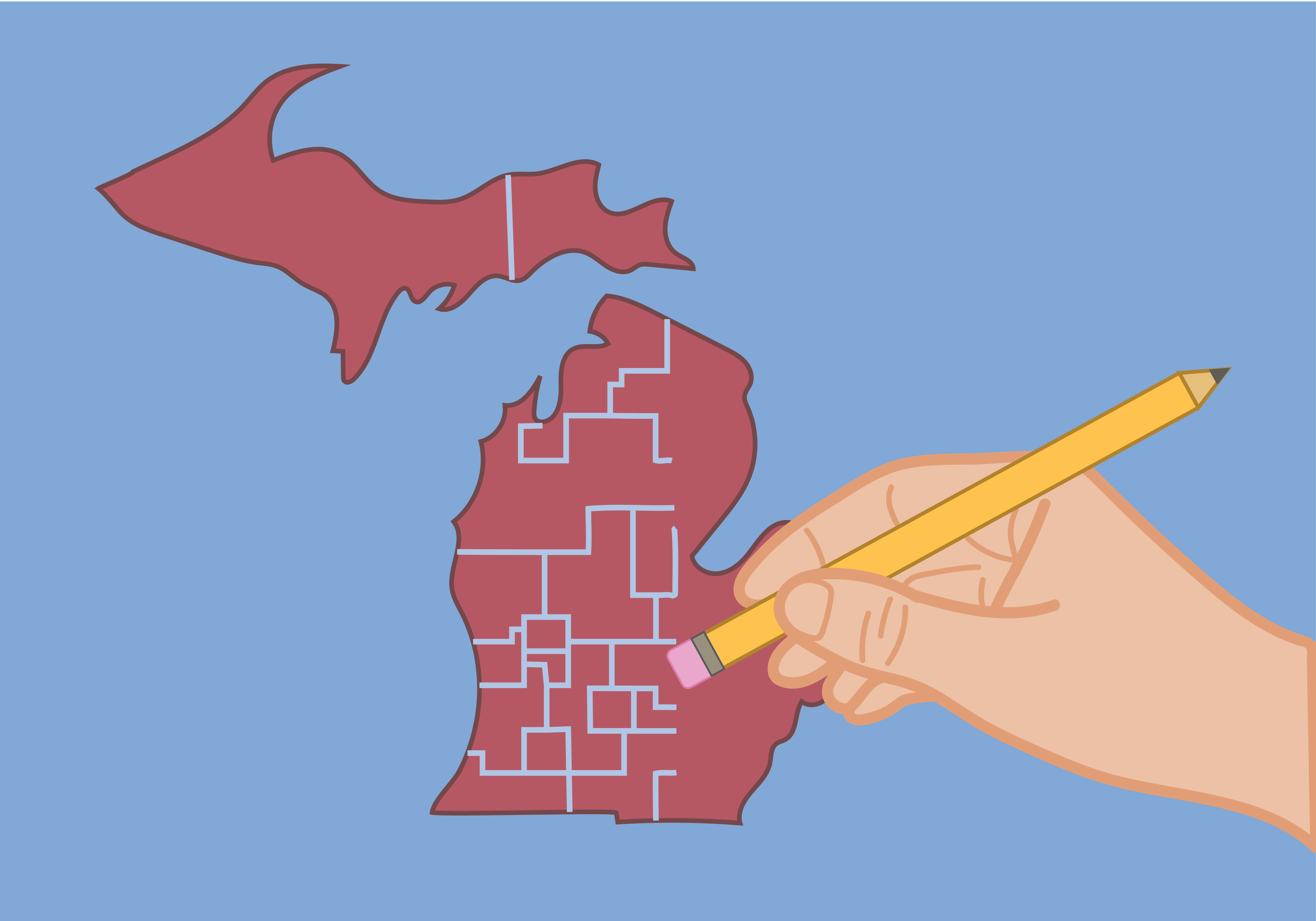
Republicans have used gerrymandering to sway elections for the past decade
While the most recent midterm elections yielded results that some would ecstatically call a “blue wave,” the lack of House seats picked up by Democrats in states like North Carolina and Wisconsin underscores the use of gerrymandering to sway elections — a benefit primarily felt by Republicans.
In Wisconsin, Democrats won all the statewide offices but failed to win seats in the assembly or the state Senate, both of which have maintained a staggering Republican majority. In North Carolina, Democrats won the popular vote by 79,000 votes — a majority — but only won 54 out of 120 seats (45 percent). The 2016 election played out similarly in North Carolina, with Democrats winning 47 percent of the statewide popular House vote, yet only garnering 23 percent of the seats. Obviously this isn’t North Carolina’s first incident with illegal congressional redistricting.
In 2011, North Carolina was forced by a Supreme Court decision to redraw its congressional districts because they were found to be illegally gerrymandered along racial lines, which by definition is unconstitutional. Since the court’s decision, however, North Carolina’s election results prove that the state has yet to create more equal districts.
Wisconsin and North Carolina aren’t the only ones guilty of unequal, possibly illegal, redistricting; in fact, the Associated Press conducted a study which determined that partisan gerrymandering has benefited Republicans far more than Democrats — best exemplified by the 2016 presidential election.
The Associated Press analyzed 435 U.S. House races and around 4,700 state House and Assembly seats up for grabs in 2016 and found four times as many states with Republican-skewed state House and Assembly districts than Democratic ones. Traditional battleground states, such as Michigan, North Carolina, Pennsylvania, Wisconsin, Florida and Virginia, were among those with significant Republican advantages in their U.S. or state House races.
So how is it that Republicans continue to lose a majority of votes for the House and yet typically hold a majority of House seats?
Republican dominance in myriad states began in the 2010 elections, which gave the party full control of 25 state legislatures and 29 governorships. The timing couldn’t have been more fruitful; Republicans gained majorities just in time to biasedly redistrict the map based off the 2010 Census. Presently, Republicans control 33 state legislatures and 33 governorships — not to mention the presidency, the judiciary and the Senate. Traditional battlegrounds states in the 2016 election all had districts drawn by Republicans after the last census in 2012.
While Republicans are the primary perpetrators of redistricting in their party’s favor, a lawsuit has also been filed against Maryland, where Democrats hold control. This simply goes to show that either party is willing to exploit the system to their benefit when the ability to do so is within their means. This is not a partisan issue — this is a Constitutional issue that concerns the rights of all Americans.
Fortunately, not all states are waiting for the Supreme Court to mandate equal districting. States like California, Arizona, Ohio and, most recently, Michigan have successfully implemented or passed anti-gerrymandering initiatives. The only reason why all states haven’t done this is because they are not legally obligated to do so. The Constitution allocates the power to set “the times, places, and manner” of federal elections to state legislatures, a power that affords members of the majority party considerable advantage and, therefore, one that is not easily forfeited. The states that have intently acted to curb partisan gerrymandering have done so as a result of the efforts of voters, who were able to obtain control of political boundaries from legislators — legislators that prefer choosing their voters rather than having to rely on their voters choosing them.
In California, for example, after four years of incumbent Democrats sweeping state legislative and Congressional elections, voters passed Proposition 11 in 2008, creating an independent commission responsible for drawing districts. This did not pass without a fight: the bill was contested amongst key democratic leaders like Nancy Pelosi and, in total, Democratic political leaders spent $7 million in an effort to defeat the measure. Both Democratic and Republican legislatures across the nation have stifled measures to minimize political manipulation when it comes to redistricting. It is significant, however, that Republicans are the disproportionate beneficiaries of gerrymandering.
If the GOP continues to dominate absent of a majority of support from their constituents, it’s likely that we are waiting to see one of two things play out: either people will realize what’s happening, reject it and therefore trigger the fall of the Republican party, or people will ignore this and the GOP will continually become a party that no longer requires votes to win elections.
No matter what, consistently governing against the will of a majority of Americans has torn and will only continue to tear our country apart.
Written by: Hanadi Jordan — hajordan@ucdavis.edu
Disclaimer: The views and opinions expressed by individual columnists belong to the columnists alone and do not necessarily indicate the views and opinions held by The California Aggie.



